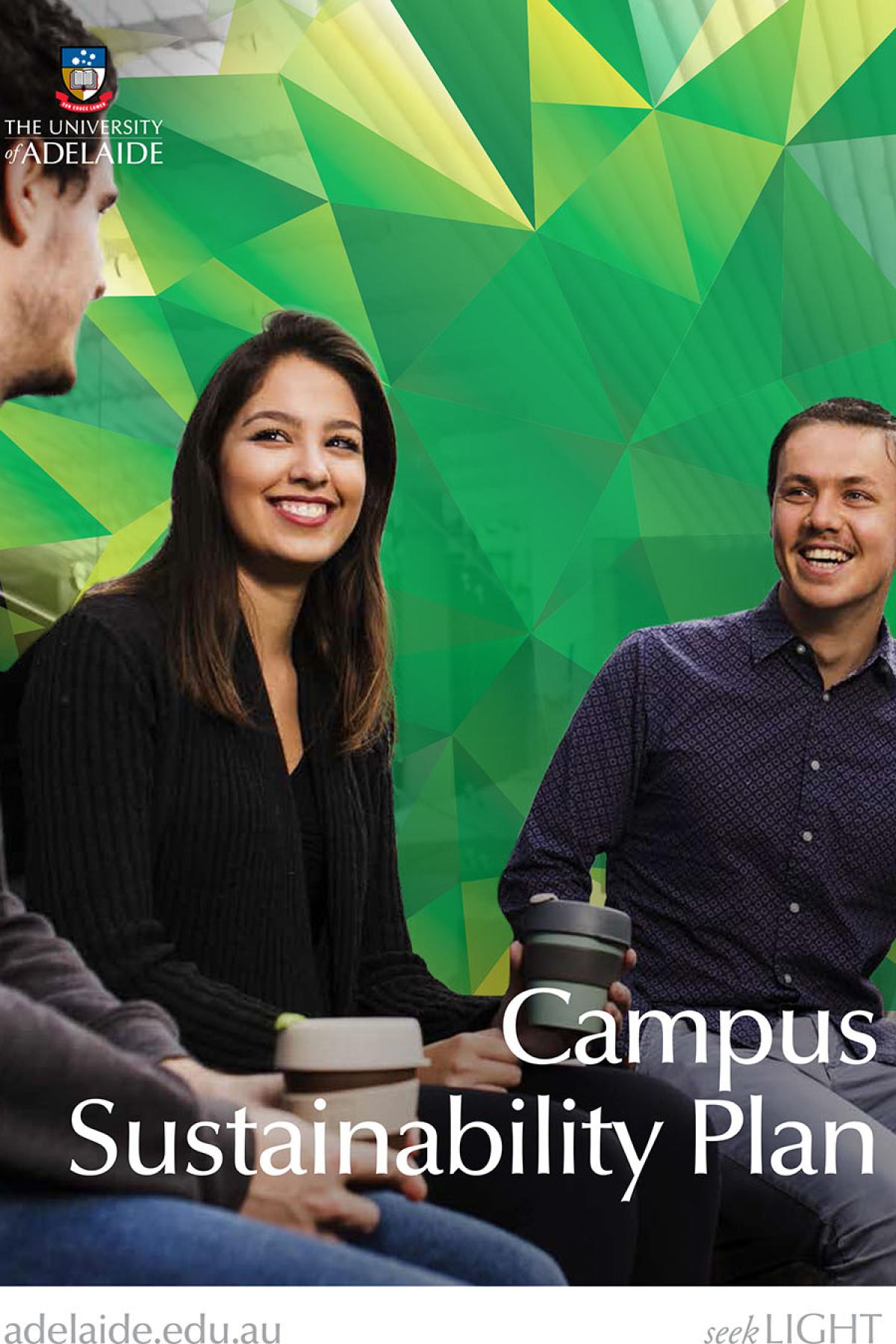Previous Strategies and Results
The University's first Sustainability Plan reduced emissions and helped foster a sustainable campus culture by investing in low-carbon infrastructure and supporting sustainability-related campaigns and events.
Campus Sustainability Plan (2016-2020)
Highlights include:
- Direct greenhouse gas emissions reduced by 18%.
- 1.85MW of renewable energy installed on campus.
- Roseworthy solar farm and battery system powering 42% of the campuses electricity needs.
- 40% landfill diversion rate.
- 70+ on-campus and online events hosted.
Target progress summary
| Target | 2020 status | Outcome | Comment |
|---|---|---|---|
| 15% reduction in energy intensity (GJ/GFA m2) by 2020 (2014 baseline) | 18% reduction in energy intensity (GJ/GFA m2) |
Achieved |
Energy consumption (particularly electricity and stationary fuel) was down significantly due to a combination of less activity on campus, renewable energy installations and energy-efficient building retro-fits. The pandemic helped the University surpass this target through reduced occupancy on campus in 2020. |
| 2MW of renewable energy installed by 2020 | 1.85MW installed, additional 150kW at Waite Campus pending approval | Underway |
Two rooftop solar projects are pending approval which will add 150kW to our campus total and allow us to reach the 2MW target. |
| Reduce landfill per person to 35kg per person (EFTSL+FTE) | 27kg per person |
Achieved |
Landfill diversion has steadily increased through increased recycling, total waste generation has been in decline for 4 years running. |
| Maintain water consumption per person at 14kL per person (EFTSL+FTE) | 14kL per person |
Achieved |
Water consumption remained steady with a focus on sustainable irrigation practices and recycled water sources in 2020. |
| 10% annual increase in staff participation in Ecoversity program initiatives (2015 baseline) | 541% annual increase on previous year |
Achieved |
In response to the pandemic, the Ecoversity program moved online where 18,000 individuals engaged with sustainability activities. This highlights the strong demand for sustainability within the University community. |
| 10% annual increase in procurement of sustainable ethically sourced office supplies on campus (2015 baseline) | 5% annual decrease on previous year |
Not achieved |
Office purchasing was significantly down in 2020 due to increased working from home. Sustainable and ethical purchases represented 34% of total spend vs. 39% in 2019. |
| Colour | Key |
|---|---|
|
Mid blue |
Underway and on target |
|
Pale blue |
Achieved and fully implemented |
|
Black |
Not yet begun or target not achieved |

